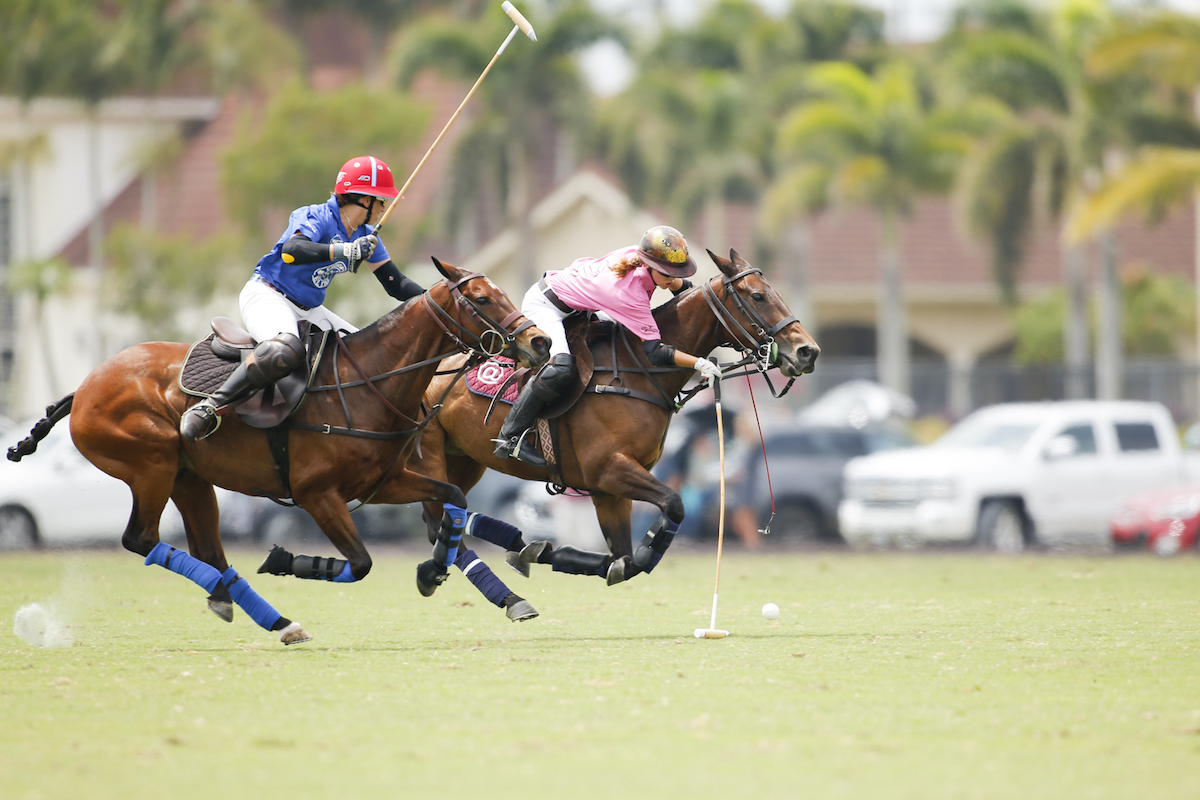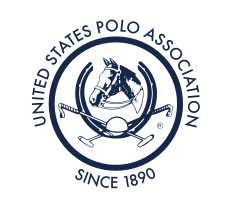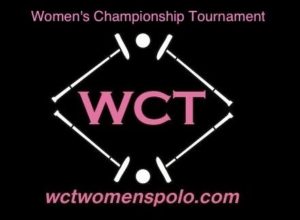Polo organizations around the globe each fill a role in building worldwide connections among players and facilitating play. Below is a summary of notable polo organizations and tournaments impacting women players.
USPA WC – United States Polo Association Women’s Committee
The United States Polo Association Women’s Committee was originally established in 1971 as the Association’s social committee, and over the last eleven years has evolved into a women’s committee dedicated to representing it’s women polo playing members, and all the Association’s members in general.
The Women’s Committee is part of the 128 year old United States Polo Association which promotes the game of polo, and coordinates the activities of it’s member clubs and registered players. Since the founding of the USPA in 1890, a few American women participated in the sport like Louise Hitchcock, considered “the Mother of Women’s Polo,” who enjoyed playing and teaching others the game, from 1901 to the early 1930’s. By 1972, a short list of women, including Elizabeth Daily, Virginia Merchant, Jorie Butler Richardson, and the exceptional, Sue Sally Hale, were officially recognized as USPA registered members and assigned a handicap. Since the 1980’s, women’s membership has grown from a low percentage of registered members to a notable increase in female registered members that includes the highly respected Vicky Armour, Stormy Hale, Leslie-Anne Masterson Fong-Yee, and Caroline Anier, to notable star, Sunny Hale, and the highly skilled, female patron, Gillian Johnston.
Sunny Hale as a professional, and Gillian Johnston as a patron, were the first two women winners of the mixed 26 goal US Open. By 2001 the female membership had grown to 22% and has nearly doubled by the year 2018 to 38%-40%. During that 35 year timespan, more women have entered the game of polo, and became active USPA members as competitive players, certified instructors, and certified umpires.
In 2014, with the help of Sunny Hale, the USPA introduced the addition of women’s handicaps for female members to enhance the level of women’s polo competition by converting standard handicaps to help alleviate compression as most women were rated between -2 and 1 goal standard handicaps.
As of today, the USPA Women’s Committee currently serves to encourage and increase the participation of women in all aspects of polo while working to improve the state of women’s polo throughout the USA via youth programs, tournament grants, education clinics, scholarships, and international cultural exchange events. The Women’s Committee is working to facilitate the communication, and networking of women in polo around the world to better partner with other polo Associations to help create opportunities on behalf of it’s members. Finally, the USPA Women’s Committee seeks to promote standards for it’s membership to conduct oneself with integrity, and dignity, on and off the field.
FIP – Federation of International Polo
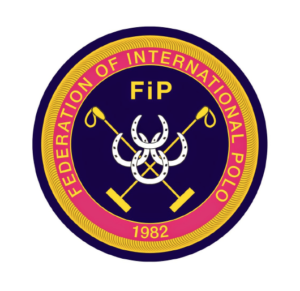 The Federation of International Polo is the International federation representing the sport of polo recognized by the International Olympic Committee. It was created in 1982 by representatives of eleven national polo associations, and currently represents the national polo associations of more than 90 countries. FIP’s mission is to promote the practice of polo and enhance the image and status of the great game of polo internationally.
The Federation of International Polo is the International federation representing the sport of polo recognized by the International Olympic Committee. It was created in 1982 by representatives of eleven national polo associations, and currently represents the national polo associations of more than 90 countries. FIP’s mission is to promote the practice of polo and enhance the image and status of the great game of polo internationally.
FIP’s goals are to unite countries that participate in polo, under one federation through one set of international (FIP) rules, and handicaps which are agreed upon and publicized by each of the national associations to provide uniformity in the sport. FIP would like to create a network of communications between clubs, and between players in an effort to exchange ideas, skills, sportsmanship, cultures between associations, and their club members through individual invitation. FIP helps educate and raise public awareness about the sport’s 2500-year-old history by featuring the player’s and horse’s athletic skills via events such as the FIP World Polo Championships, FIP European Championships, Southeast Asian Games, the 2018 Buenos Aires Youth Olympic Games, and Commonwealth Games to showcase the sport in all regions of the world where international athletics are exhibited to provide maximum exposure of polo to sports enthusiasts.
FIP also coordinates children’s tournaments, and clinics to improve playing skills, umpiring, coaching, horsemanship and horse training with the assistance of National Associations, Delegates, and the FIP Ambassadors. FIP encourages its FIP Ambassadors to promote respect, equality, integration, team spirit, fair play, and safety. FIP is proud to subscribe to the UNESCO’s International Charter on Physical Education, Physical Activity and Sport. “The United Nations Educational, Scientific and Cultural Organization is a specialized agency of the United Nations.”
Throughout the history of FIP, women have contributed to FIP’s missions, but given the recent rise in women’s polo, FIP announced in 2018 the invitation of women polo players as representatives of their home country to help build women’s polo globally, and in 2017 and 2018 organized the I and II Ladies European Championship along with a Women’s International Invitational hosted in Denver, Colorado, USA. Dawn Jones of the San Saba Polo Club is the current USA representative for the FIP Women’s Committee.
WCT – Women’s Championship Tournament
Sunny designed the WCT Qualifier Tournament format where women players with a women’s four goal handicap and below would need to participate to then qualify to play in the prestigious WCT Finals hosted in early April at the Grand Champions Polo Club in Wellington, Florida. Any woman player with a women’s five goal handicap and above are automatically qualified to participate in the WCT Finals. Sunny believed that creating, and interconnecting Qualifier Tournaments at multiple levels globally would symbolize a way for women players to take part worldwide in a league that could eventually bring qualifying players together for the WCT Finals in Wellington, Florida. The WCT tournament handicap levels currently are: 8 goal, 16 goal, and Open goal. Sunny believed these events would inspire others to try the game, and grow the sport. Her work resulted in assisting a significant rise in polo Association female memberships from approximately 22% to nearly 40%.
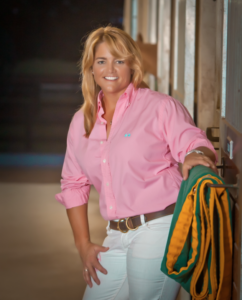
Sunny worked tirelessly to share her dream of playing polo, and ultimately becoming one of the top female players who ever played the game. She was highly respected as a player, teacher, horse trainer, breeder, author and motivational speaker. She saw the good in everyone, and certainly recognized talent when she saw it, in both beginning players, and promising horses. Her WCT concept was a singular and innovational idea well ahead of it’s time when there were few opportunities for women to enter the game outside of a few high school or collegiate programs. Sunny enlisted the help of friends, family, and Grand Champions Polo Club to organize tournament events, and clinics around the globe. She attracted the attention of generous sponsors like Bill Kraft of Catena watches who offered his prized time pieces as trophies for tournament winners. As one who always helped others before herself, Sunny encouraged charitable participation with WCT events whenever possible.
A particular note to highlight is how the WCT Qualifiers revealed how necessary a women’s specific handicap was needed to avoid compression in the mixed handicap scale. From 2005 to 2014 women participating in the WCT Qualifiers used the mixed handicap scale with a majority of players rated from -2 to 2 goals. Many of these players demonstrated they had vastly different capabilities, and needed a better method of differentiating one player’s abilities from another. With the women’s handicap scale, these -2 to 2 goal players now range in handicap from 0 to 6 out of 10 goals. In 2014, Sunny created the woman’s handicap scale, and then presented it to the United States Polo Association for their consideration. After presenting her women’s handicap scale to the USPA Board of Governors, it was finally implemented. Sunny’s handicap scale is gradually proving to be a fair and balanced way to determine accurate handicaps as women players compete with and against each other. Today, women’s polo events have adopted the women’s handicap scale in at least 8 countries including the United States, France, Argentina and England, with other polo playing countries soon to follow.
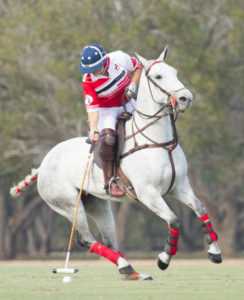 For those who may not know, Sunny Hale was an American professional polo player who played on high goal teams consisting of almost entirely men. In the year 2000, Sunny was chosen by the number one ranked player in the world, Adolfo Cambiaso to play along side him in the US Open Polo Championship which they went on to win. This was not only one of her greatest achievements, but it was also her life long dream come true to be asked to play in the US Open, and ultimately win with Adolfo Cambiaso. She was the first woman to ever win the 26 goal U.S. Open since it was first established in 1904, and at that time, she outranked 96% of players in the world including men. Sunny established the WCT in 2005 followed by creating the American Polo Horse Association in 2006 to record and preserve pedigrees of polo horses in the United States. She was named the most valuable woman player seven times, and in 2012 she was inducted into the National Cowgirl Hall of Fame. Regrettably, cancer took Sunny Hale on February 26, 2017, and soon there after she was honored with the Woman of the Year by the USPA Women’s Committee. The following year Sunny was inducted into the Polo Hall of fame by the Museum of Polo and Hall of Fame for her high achievements, and all she gave to the sport. She was much beloved by all who had the privilege to know her, and share her passion for the game, love of horses, admired her kindness to others, her sly sense of humor, devotion to her faith, and her unquestionable loyalty to those she loved most. Sunny was uniquely rare in life, and continues to be an inspiration to many as she left an indelible impression on all those she met. Women’s polo would not be where it is today had it not been for her valiant contributions. We are forever grateful. Since her passing, the WCT continues to promote, participate in, and host women’s tournaments as Sunny Hale Legacy Qualifiers in her honor.
For those who may not know, Sunny Hale was an American professional polo player who played on high goal teams consisting of almost entirely men. In the year 2000, Sunny was chosen by the number one ranked player in the world, Adolfo Cambiaso to play along side him in the US Open Polo Championship which they went on to win. This was not only one of her greatest achievements, but it was also her life long dream come true to be asked to play in the US Open, and ultimately win with Adolfo Cambiaso. She was the first woman to ever win the 26 goal U.S. Open since it was first established in 1904, and at that time, she outranked 96% of players in the world including men. Sunny established the WCT in 2005 followed by creating the American Polo Horse Association in 2006 to record and preserve pedigrees of polo horses in the United States. She was named the most valuable woman player seven times, and in 2012 she was inducted into the National Cowgirl Hall of Fame. Regrettably, cancer took Sunny Hale on February 26, 2017, and soon there after she was honored with the Woman of the Year by the USPA Women’s Committee. The following year Sunny was inducted into the Polo Hall of fame by the Museum of Polo and Hall of Fame for her high achievements, and all she gave to the sport. She was much beloved by all who had the privilege to know her, and share her passion for the game, love of horses, admired her kindness to others, her sly sense of humor, devotion to her faith, and her unquestionable loyalty to those she loved most. Sunny was uniquely rare in life, and continues to be an inspiration to many as she left an indelible impression on all those she met. Women’s polo would not be where it is today had it not been for her valiant contributions. We are forever grateful. Since her passing, the WCT continues to promote, participate in, and host women’s tournaments as Sunny Hale Legacy Qualifiers in her honor.

